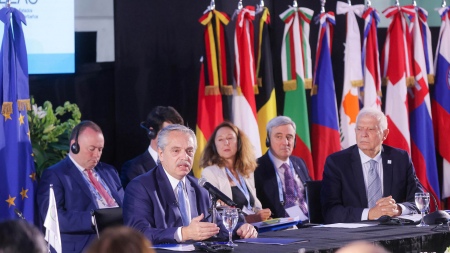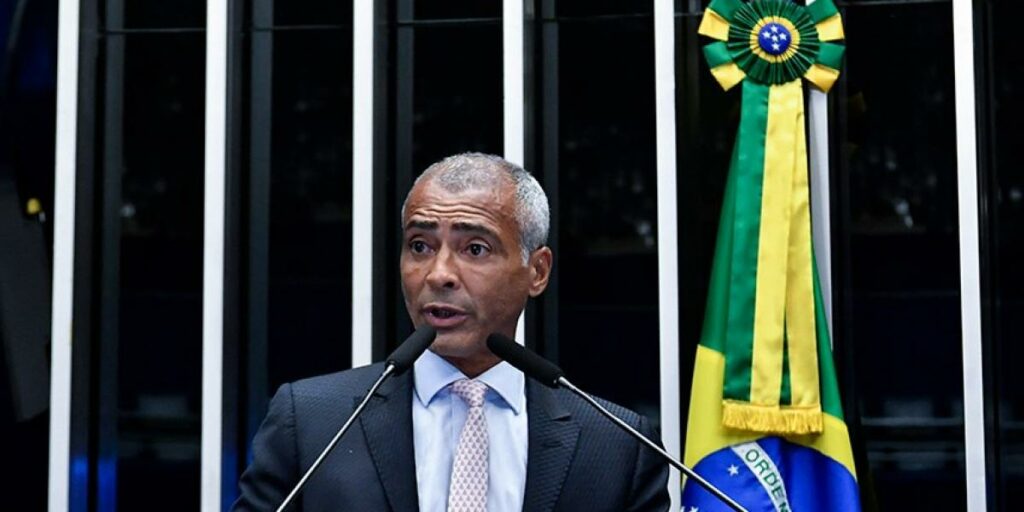The foreign policy deployed by the national government constituted one of the strong points of the management of Alberto Fernández in the year that is ending, embodied in his leadership at the head of Celac and his interventions in the main multilateral forums, to which he brought the voice of Latin America and the Caribbean to the world.
These actions were combined with the renewed international support for the Malvinas Cause and the “strategic balance” that Argentina maintains in a global context dominated by the war in Ukraine and the geopolitical dispute between the two superpowers: the United States and China.
Promotion of regional integration
The assumption, in January 2022, of Fernández at the head of the Community of Latin American and Caribbean States (Celac) strengthened the international presence of the Argentine president, at a time when old Europe, plagued by energy shortages and the rise in prices in the food product of the war, he turns his gaze towards the region, abundant in these resources.
Since the pro tempore presidency (PPT) of Celac, and before the inauguration of progressive leaders such as Gustavo Petro (Colombia), Gabriel Boric (Chile) or Luiz Inácio Lula da Silva (Brazil) himself, Fernández, almost alone, tried to give a new impetus to regional integrationabandoned during the neoliberal hegemony on the subcontinent, relaunched the bloc’s relationship with Europe and strengthened ties with China, without neglecting the link with Washington.
The Argentine presidency of the UN Human Rights Council, the participation of the head of state in international forums such as the G7, G20, the Summit of the Americas, the advanced process of integration of Argentina to the Brics, and the role played by Fernández together with his French counterpart Emmanuel Macronboth in seeking an urgent solution to the war conflict between Russia and Ukraine and NATO allies, as well as in the constitution of the political dialogue between Chavismo and the Venezuelan opposition, are some of the milestones of foreign policy during 2022.
Argentina deploys a “friendly, realistic, dignified foreign policy that does not forget the Malvinas or its regional insertion” and that it maintains a “strategic balance” in this convulsed world, sources from the San Martín Palace told Télam to characterize the profile of foreign policy outlined by Foreign Minister Santiago Cafiero.
The Russian invasion of Ukraine last February, when the world was still feeling the throes of the pandemic, marked the international scene in 2022, and the Argentine President took advantage of each of his interventions to demand peace and denounce that the southern hemisphere suffers with hunger and misery the consequences of a decided war in the north, while seeking to insert the region into secure supply chains but from the application of added value: in fact, that Latin America and the Caribbean make this world context an “opportunity” for its development.
The immediate agenda: Celac and Brazil
The recent Mercosur summit and the next meeting of Celac heads of state, on January 24 in Buenos Aires, are the last two key events for Fernández in his regional projection as head of the second multilateral organization, in addition to his trip to Brazil to attend the inauguration of President-elect Luis Inácio Lula da Silva.
Fernández’s attendance at Lula’s inauguration, on January 1 in Brasilia, marks for the Casa Rosada another event of great relevance in its foreign policy, not only due to the importance of Argentina’s strategic relationship with its main commercial partner, but also by projection that the good political harmony that exists between both South American leaders could have for the future of the region.
For his part, Lula will return the gesture by visiting Buenos Aires for the Celac meeting in January, on his first trip abroad as president.
From the Argentine Foreign Ministry, they highlighted the relationship of “friendship” and the “political harmony” that unites both leaders, and recalled that the elected president of Brazil has a “personal gratitude” to Alberto Fernández for the visit that “without measuring costs” he He was carried out in July 2019, even as a candidate for President, to the Curitiba prison.

As Télam was able to learn, although the specific issues that will be discussed at the next Celac summit have yet to be defined, progress will continue in the gradual process of integration of the region, “without exclusions and respecting the diversity political, economic, social and cultural aspects of the more than 600 million inhabitants of Latin America and the Caribbean”, a principle that
Fernández emphatically defended at the last Summit of the Americas (which was hosted by the Joe Biden government), and what specifically means the inclusion of Cuba, Venezuela and Nicaragua, countries indicated by Washington.
“That is the spirit with which Celac was born, and that was what Argentina did during its pro tempore presidency this year,” they highlight near Cafiero, about the imprint of the Argentine president at the head of the regional mechanism, which he aspires to continue presiding next year.
In the San Martín Palace they trust and evaluate that the important achievements obtained by the Argentine PPT will facilitate the re-election of Fernández as head of Celac.

international photos
So far in 2022, the Argentine president has brought the Latin American voice and position to different international forums: at the last G7 summit, in Germany, where he denounced the consequences that the war in Ukraine imposes on the southern hemisphere, the energetic claim at the last Summit of the Americas for the end of the blockades and sanctions imposed by Washington on countries in the region (such as Cuba and Venezuela) and his recent interventions at the Paris Forum for Peace, to which he was invited personally by his French counterpart, Emmanuel Macron; and at the G-20 Leaders Summit, held in Indonesia.
With discretion and caution, Argentina has been intervening in the search for alternative mechanisms that provide a solution to the war: In different bilateral meetings and international summits, Fernández proposed to the most important European leaders to add new actors to the discussion table on what to do to end the war, given the evident failure that in a sense they were shown to be different by multilateral forums in which only the powerful countries of the West were sitting against Russia.
The issue was part of the dialogues that Fernández had with Macron in recent months, with the German chancellor, Olaf Scholz, and even with the Russian president himself, Vladimir Putin, with whom he has spoken twice since the war began.
Weeks ago, within the framework of the Paris Forum for Peace, Fernández and his peers, Emmanuel Macron and Gustavo Petro (Colombia), launched the mechanisms of the so-called “Contact Group”where they sat the ruling party and the Venezuelan opposition at the negotiating table, so that human rights and democracy can be fully governed in that country and without interventionism, within the framework of a process that will lead to the 2024 presidential elections.
















